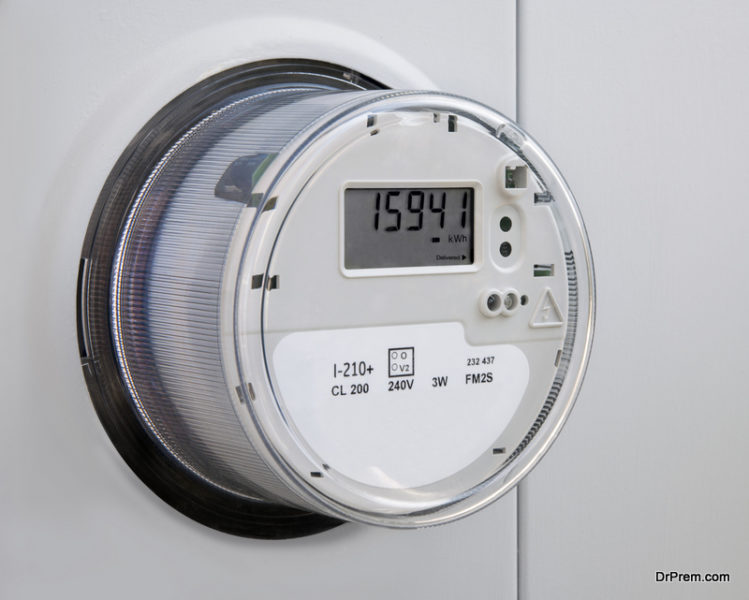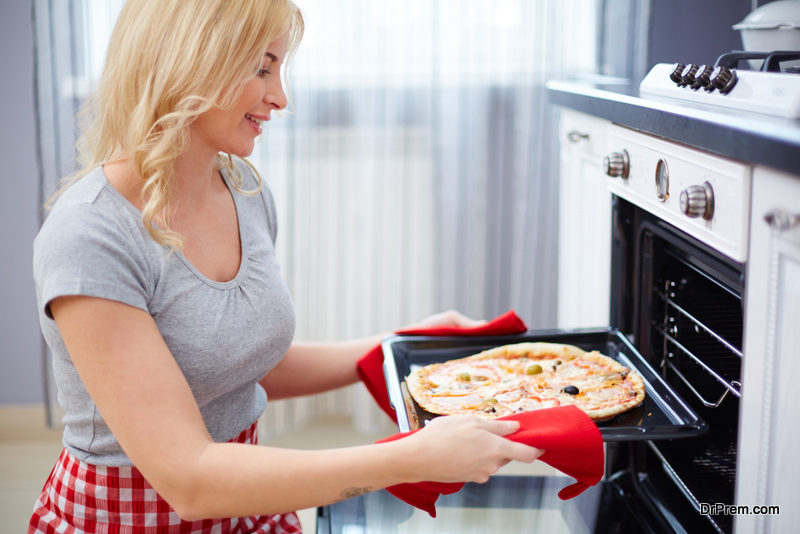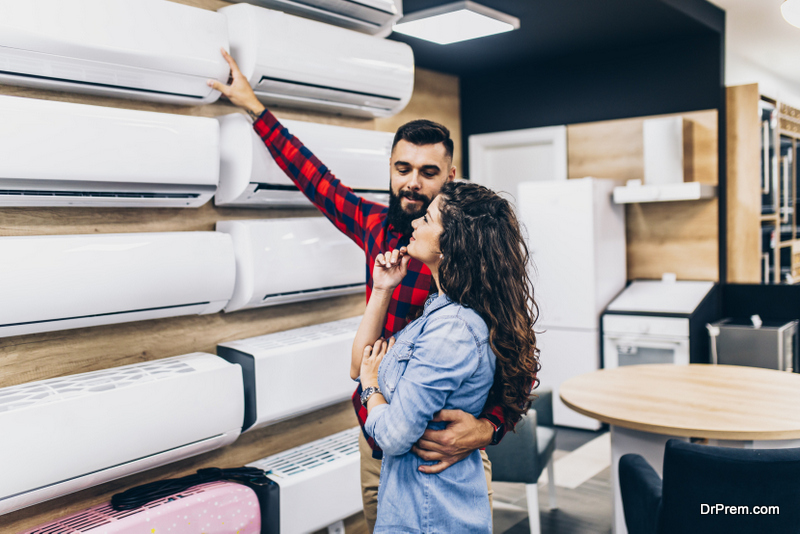When you’re thinking about how to improve the efficiency of your home, there are two main questions you should consider: which upgrades will provide the most savings in terms of energy costs and which will add value to your home? Reducing our carbon footprint is a goal for many of us and with the added bonus of saving cash, switching to energy-saving options is of benefit to all of us.
Improving the energy efficiency of your home is an important responsibility as this allows you to make the most out of your investment for the longest time possible. A house that doesn’t have any electricity will eventually become useless and will discourage you from spending time in it.
Here is a list of some upgrades you can make which tick both of these boxes.
1. Replace Appliances with Energy-Efficient Alternatives
 Homes which date back further than 15 years could benefit from new appliances such as boilers, air conditioners or heating systems. The technology for these types of appliances has evolved a lot in recent years and you can now switch to energy-efficient alternatives for many of the appliances in your home, which saves you money and is better for the planet.
Homes which date back further than 15 years could benefit from new appliances such as boilers, air conditioners or heating systems. The technology for these types of appliances has evolved a lot in recent years and you can now switch to energy-efficient alternatives for many of the appliances in your home, which saves you money and is better for the planet.
Some examples of energy-efficient alternatives are newer models with higher energy-efficient ratings, such as appliances that use inverter technology. Look for the Energy Star ratings or label to know how many kilowatts an appliance would consume per hour.
If brand new appliances is too much, you can always just improve what you have, for example with an old AC unit an old 30x30x1 filter, you can replace that with a brand new 30x30x1 air filter and you should see it become more efficient.
Replacing your appliances with energy-efficient alternatives might require money from your pocket but this will eventually be worth it in the end. Aside from improving how your home looks as newer models usually look sleeker, buying newer appliances will also help you reduce your electricity consumption, resulting to lesser energy bills.You can think of it as a long-term investment.
2. Add Insulation to Your Loft
The amount of insulation your home needs depends on the climate the home is based in, but while newer homes are usually well insulated, older houses are often in need of an upgrade. Because hot air rises, the loft is usually the biggest culprit of heat loss in the home so adding an extra layer of insulation can help to keep the heat inside.
Along with switching to a better energy provider, such as Gexa Energy, adding insulation to your loft will surely make your home more energy-efficient and comfortable!
3. Add a Smart Meter
 Smart meters are becoming increasingly popular and they’re a great way of making your home more energy efficient. They make it easy to see when you’re using the most energy and the cost of those higher usage periods, so you can amend your habits to bring costs down. It also means you’ll be saving money and cutting your carbon footprint down too. Some smart meters can even identify when you leave or arrive home based on your phone signals, so you won’t be wasting money heating your home when you’re not there to benefit.
Smart meters are becoming increasingly popular and they’re a great way of making your home more energy efficient. They make it easy to see when you’re using the most energy and the cost of those higher usage periods, so you can amend your habits to bring costs down. It also means you’ll be saving money and cutting your carbon footprint down too. Some smart meters can even identify when you leave or arrive home based on your phone signals, so you won’t be wasting money heating your home when you’re not there to benefit.
Along with a smart meter, it’s also a good idea to find out the most energy-efficient energy option for your home by talking to a reputable energy provider, such as the Houston energy company.You can find renewable energy options, like solar energy, at fixed payments that could be stretched to 12, 24, or 36 months.This way, you can eventually reduce electrical consumption and rely on sustainable sources of energy as well.
4. Change Up the Lighting
One of the cheaper changes you can make to your home that makes a big difference in both energy savings and appearance is lighting. Light fixtures account for around a third of a home’s total electricity costs so adding energy efficient options like LED lights will help to minimize these costs. Unlike traditional bulbs, LED lights emit very little heat and won’t require your HVAC system to work harder just to make the rooms in your home cooler. LEDs are also smaller in size and uses lesser power.
It also helps to make use of natural light as well, such as adding in skylights or larger windows if your budget allows. Choose to open your windows if you think that your home starts to feel warmer and close them when it begins to feel cold. Adding some window treatments, such as blinds and curtains will also allow you to control the temperature in your home better. These changes will improve the amount of passive solar gain your home receives, adding light and additional warmth even in the cooler months.
Limiting your light consumptioncan help you save on electricity too. Think about the number of aesthetic lights installed on your ceiling. Do you think you need them all lit up at night? Task lights should beturnedon when you’re doing something, like cooking or reading, but you can leave them off when they’re not being used.
5. Upgrade Kitchen Equipment
 The kitchen is the heart of the home, so it’s a prime location for improvements. Refrigerators and ovens are the main uses of energy in a kitchen, as well as dishwashers, so these appliances are the first areas that you should consider upgrading to energy efficient options. If you’re fond of baking, then it’s best to prioritize replacing old ovens, microwaves, and even blenders and mixers.This is especially important if you’ve been using the same model for decades. Older appliances usually consume more power to work properly.
The kitchen is the heart of the home, so it’s a prime location for improvements. Refrigerators and ovens are the main uses of energy in a kitchen, as well as dishwashers, so these appliances are the first areas that you should consider upgrading to energy efficient options. If you’re fond of baking, then it’s best to prioritize replacing old ovens, microwaves, and even blenders and mixers.This is especially important if you’ve been using the same model for decades. Older appliances usually consume more power to work properly.
This will save you money straight away while you’re living in the property and will also add to the value of the property should you ever choose to sell it in the future. Upgrading your appliances will help cut a significant cost in your energy bills, especially if you replace them with highly efficient ones.
Think Long-Term
Being a homeowner requires long-term responsibility because you have to regularly pay your energy bills to ensure that you can continue enjoying this investment. Living in a house that doesn’t have any electricity will make your investment useless.
If you’re looking for ways to maximize your investment, follow the tips in this article so you can save money on your energy bills. The lesser your energy bills are, the easier it’ll be for you to maintain the functionality of your home!
Article Submitted By Community Writer




